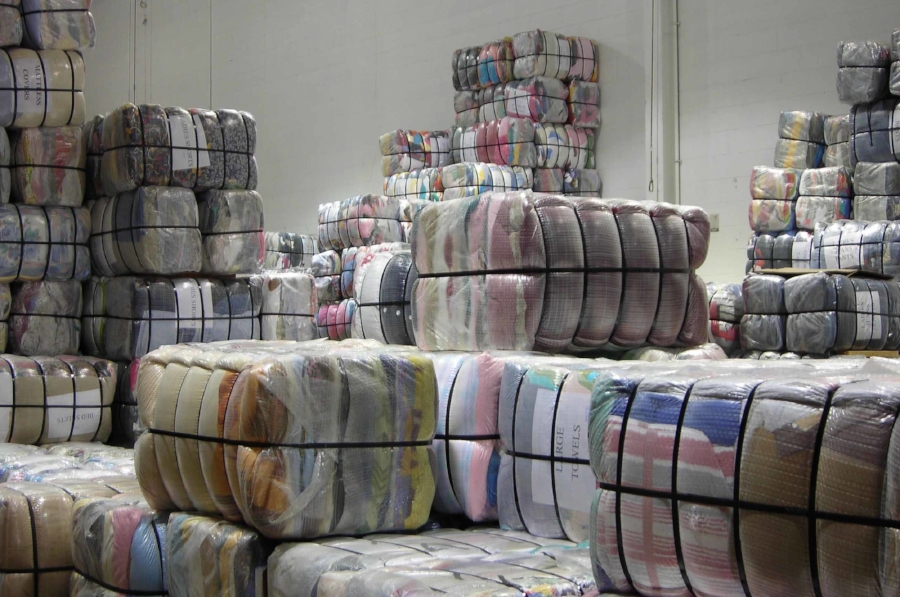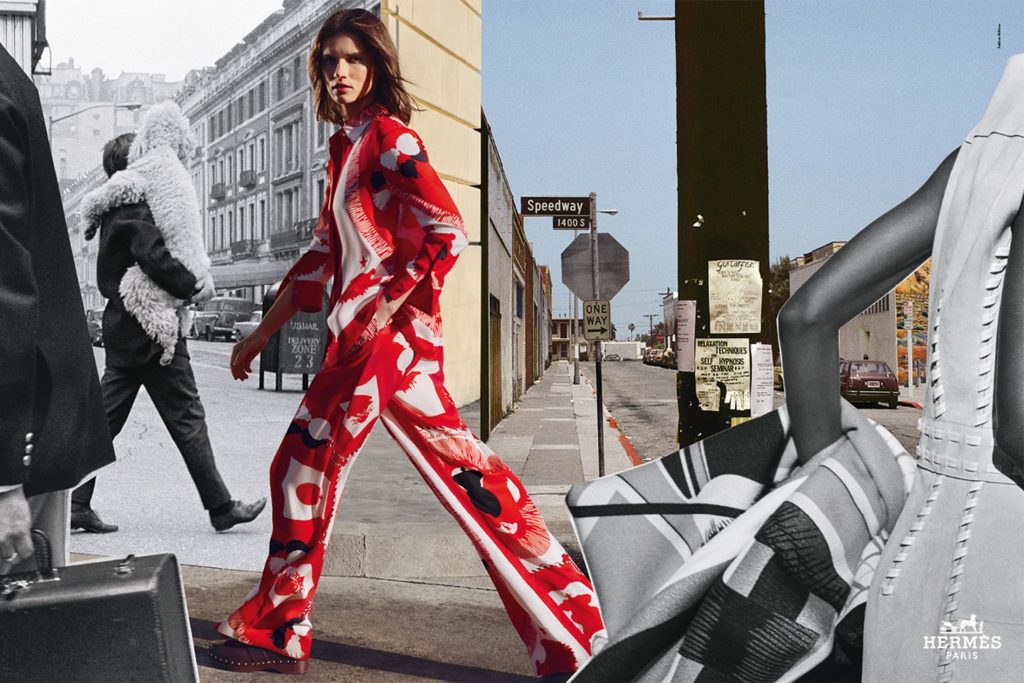Underway in the background of the ever-escalating trade war between the U.S. and China is another Trump administration trade fight, one borne from those barely worn Zara dresses that have been sitting in your closet, the cheap H&M sweaters you bought on a whim at the first hint of winter two years ago, the runway-inspired shoes you needed but have since sworn off for a trendier style. Those are the things that tend to find their way to Goodwill or the Salvation Army donation centers, or are discarded in large donation containers strewn across cities in the U.S.
But do you know what actually happens to your cast off clothing once you donate it? Or better yet, do you know what does not happen to those garments? Due to the sheer volume of donated clothing in the U.S., most of these wares never make it to shelves in stateside secondhand stores. Instead, they are – or in a growing number of cases, were – shipped to Africa, India, Pakistan, and other far-flung locales, where they are sold to traders, who will then sell them to consumers.
As the New York Times’ Kimiko de Freytas-Tamura wrote last fall, “Across Africa, secondhand merchandise is the primary source of clothing,” with discarded garments coming en masse from the U.S. and Europe. Oxfam, a British charity that sells donated clothes to traders in Africa, estimates that at least 70 percent of its donated garments are sold to companies in Africa. In the U.S., where the sale of used clothing comprises a nearly $1 billion industry, donations typically end up in Africa, as well.
Long viewed as a way for consumption-happy Americans to help boost the well-being – and wardrobes – of those less fortunate, the used clothing trade has put a significant rift between the U.S. and Rwanda. Early last year, just weeks after Donald Trump was sworn in as president, “a little known American trade association filed a petition with the U.S. Trade Representative” (“USTR”) in connection with efforts by Rwanda, Tanzania, and Uganda to cut down on the imports of used clothing.
That seven-page letter – which was sent by the Secondary Materials and Recycled Textiles Association (“SMART”) – “set Africa in the cross-hairs of the new administration’s ‘America First’ trade ideology, pitting the world’s largest economy against tiny Rwanda over an unlikely U.S. export: cast-off clothes.”
In its letter, SMART informed the USTR of a March 2016 decision by the East African Community – a regional trade agreement similar to NAFTA, which includes Rwanda, Tanzania, and Uganda – to implement a ban on imports of used clothing and footwear. The U.S.-based organization, which represents companies that collect and resell Americans’ used clothing, complained that the East African trade barriers were responsible for the loss of 24,000 jobs, Still yet, $124 million in sales of used garments and accessories are at risk.
The letter came as a number of African countries, including Kenya, Uganda, Tanzania, South Sudan and Burundi, began working to phase out imports of secondhand clothing and shoes. In recent years, Rwanda has emerged as the most aggressive. In 2016, the nation raised its per-kilogram import tax in 2016 from 20 cents to $2.50, amounting to what SMART calls “a de facto ban.”
The purpose of this so-called ban? To bolster the economy of Rwanda, which is still in the process of rebuilding following the genocide in 1994, which claimed the lives of an estimated 500,000 to 1 million individuals.
While the sourcing of low-cost apparel has served to benefit many poverty-stricken African consumers, who are simply looking for affordable clothing, it has historically had a negative impact on African apparel production, according to African politicians, including Rwanda’s president, Paul Kagame.
“For countries like Rwanda, a small landlocked state with few natural resources to extract and export, building local manufacturing is vital for [long-term economic] development, officials contend,” according to the Times.
The ban was met with much more than outrage from SMART, though. It comes with threats from the U.S. Trade Representative and Trump, himself: Keep the tariffs in place and you will lose benefits under the African Growth and Opportunity Act (“AGOA”), America’s preferential trade deal intended to lift trade and economic growth across sub-Saharan Africa.
In a March 2018 letter to U.S. Congress, Trump stated that Rwanda’s duty-free status for apparel would end if the country failed to take corrective actions.
The USTR gave Rwandan officials a timetable: 60 days to revoke the tariffs, or else.
“The United States has been explicit about what Rwanda must do to adhere to the AGOA eligibility criteria,” a U.S. official told Reuters. “It is up to Rwanda to make a decision.” That window ended in May 2018.
In late July, the Trump administration ordered the formal suspension of Rwanda’s ability to ship apparel products duty-free to the U.S. According to an announcement from the USTR, the ban – which only places limits on Rwanda’s $1.5 million in annual apparel exports, while its Rwanda’s other duty-free benefits under the African Growth and Opportunity Act – will ideally only be “temporary,” with Deputy USTR C.J. Mahoney saying that, “We regret this outcome.”
The Trump-ordered ban follows from a larger trade dispute that has “provoked dismay in Washington and Africa,” and beyond, per Reuters.
According to Garth Frazer, a professor of Economic Analysis and Public Policy at the University of Toronto, “Whether restriction of used-clothing imports is a good policy for African countries is open to debate.” What is “deeply concerning,” he says, “is that when the members of the East African Community decided to increase the restrictions on used-clothing imports, the current U.S. administration responded by threatening to remove AGOA benefits for them.”
Rosa Whitaker, who was appointed by President Bill Clinton as the United States’ first Assistant Trade Representative for Africa, told Reuters that the Trump administration’s actions constitute bullying, a word that is being throw around maybe more than any other in connection with the standoff between the U.S. and Rwanda.
*This article was initially published in March 2018, but has been updated the reflect the suspension of Rwanda’s duty-free status, and to include commentary.











